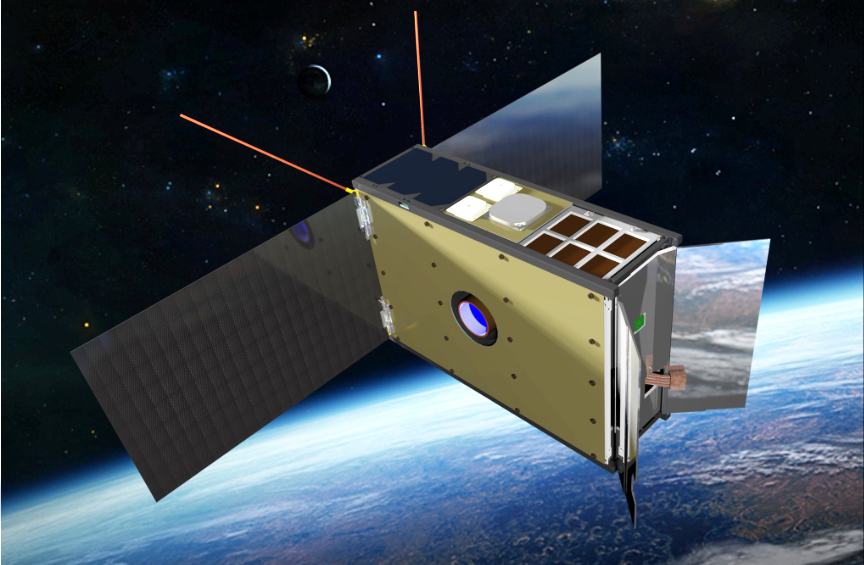
The University of Melbourne built Australian SpIRIT astronomy smallsat team has selected DcubeD actuators for this upcoming mission The actuators will trigger the deployment of the radiator for the SpIRIT mission that is set to launch in 2022.

For the deployment of the Australian-made satellite’s large radiator, the SpIRIT (Space Industry – Responsive – Intelligent – Thermal Nanosatellite) team has selected DcubeD (Deployables Cubed GmbH), a New Space smallsat mechanisms company specializing in nano-sized actuators as well as deployables for smallsats. The deployment of the mission-critical radiator will be ensured using DcubeD’s nano pin puller, nD3PP, triggering the deployment of the radiator once in space.
The SpIRIT mission is an innovative smallsat consisting of an Australian-designed and made spacecraft platform and a main payload for gamma and x-ray remote sensing, provided by Italian project partners. This will be accompanied by three technologies to be space qualified: TheMIS (Thermal Management Integrated System), Mercury (adaptive autonomous low-latency communications module) and an Australian developed high efficiency electronic propulsion system.

It is crucial that the TheMIS technology provides the required operating temperature of the main payload role, for which a large heat rejection radiator surface is required. A deployable radiator, such as the one SpIRIT uses, can greatly enhance the thermal performance by increasing the available radiative surface area whilst cooperating with the volumetric constraints of smallsats. DcubeD’s release actuators will secure the successful deployment of radiator panels and so support the spacecraft thermal control.

“SpIRIT is a truly exciting mission. SpIRIT will make a valuable contribution to the primary HERMES constellation as it hunts for newly born black holes and other electromagnetic counterparts of gravitational wave events, putting a nanosatellite constellation at the forefront of science,” said Dr. Thomas Sinn, CEO of DcubeD. “Being selected as a supplier for the release actuators of the deployable radiator for this exciting mission fills me and the whole DcubeD team with pride."
“Our SpIRIT mission aims to advance the capabilities of small spacecraft by providing the opportunity to demonstrate new technologies in orbit,” said Mr. Simon Barraclough, Technical Director for the SpIRIT mission. “A key technology is the payload thermal control system being developed by the University of Melbourne. The DcubeD device is an important enabler in the safe and dependable release of deployable thermal radiator. We have been very pleased with the product and service provided by DcubeD and look forward to its successful operation in orbit“.
The Melbourne Space Laboratory (MSL) in the School of Physics at the University of Melbourne is focused on developing innovative miniaturized payloads and technological solutions for smallsats to enable scientific investigations, commercial opportunities and defense applications traditionally restricted to substantially larger and more expensive satellites. Founded in 2019, it has already established itself as one of the points of excellence for smallsat R&D in Australia, as demonstrated by the award to lead the Space Industry – Responsive – Intelligent – Thermal (SpIRIT) nanosatellite, the first space mission selected for flight by the Australian Space Agency (International Space Investment – Expand Capability scheme). The laboratory is contributing to the growth of the Australian space sector and includes academics with international leadership in space science and engineering, as well as engineers with extensive international experience in aerospace companies.
DcubeD (Deployables Cubed GmbH), located in Germering, Germany, develops actuators and deployable structures tailored for smallsats and the commercial space industry. DcubeD will help with their release actuators (pin puller and release nut) and deployables (100W Solar Array, Space Selfie Stick, Deployable Boom)
